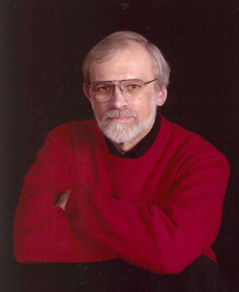2. Background
Climate change. High cost of energy. Growing congestion. Michigan's plummeting economy.
How can we solve all these problems?
The answer lies in taking world-class methods and applying them with American ingenuity and know-how. The place to start? Right here in Washtenaw County.There are many groups working on these problems: climate, energy, congestion, the economy. What we need is to get all these groups working together.
The key to all these problems is to build sustainable, transit-oriented communities. Sustainability requires minimum dependence on outside resources, including food, energy, and waste management. We have the technology to build sustainable communities; what we have lacked is the collective will to do it. We are now coming to realize the need for sustainability, and with that realization comes a growing will act. There is a realization that we have become dependent on food grown thousands of miles from us, and low-cost transportation can no longer be expected. We all know that heating and cooling costs are spiraling out of control, and we need to find alternatives to fossil fuels if we want to continue to live comfortably.
Why transit-oriented? Because transportation is the largest single factor determining how populations settle and build communities. Civilization as we know it depends on being able to move people and goods around.
The latter half of the twentieth century in the United States based almost all its transportation and settlement patterns on highways. Individuals gained freedom of movement by owning personal automobiles, and distributers of goods gained flexibility by using large trucks.
This was successful and liberating as long as (1) fuel was inexpensive, (2) the number of vehicles did not exceed the capacity of the highway system, and (3) a significant proportion of the population was able to afford private vehicles. But each of these three conditions is now seriously challenged. About 30% of energy expended in the United States is used to move people and goods around. Privately owned vehicles (POVs) now demand an increasing share of personal and community resources.
Though effective at providing flexible transportation, POVs are not efficient for moving large numbers of people. We need communities built for convenient walking and accessible to efficient transportation, in order to free us from dependence on fossil fuels, reduce greenhouse gas emissions, and turn around the economy.
But...
They say it can't be done: "Michigan's history and spirit is too deeply rooted in the private automobile." "We can never expect Michiganders to embrace any solution that isn't based on cars."They say it can't be done: "Michigan's politicians and developers are too happy making money from the status quo." "They'll never be proactive enough to invest in new solutions."
We say, it must be done. Future generations of Michigan residents will trapped in poverty and unsustainable communities if we don't act now.
One extremely valuable and insightful guide is Michigan Future's Progress Report:
To us the clear message from the data we have just reviewed is the key to economic growth is talent. Quite simply, in a flattening world, economic development priority one is to prepare, retain and attract talent.
There are no quick fixes, the Michigan economy is going to continue to lag the nation for the foreseeable future. But there is a path back to high prosperity. As is laid out in our New Agenda report, we believe the framework for action is:
- Building a culture aligned with (rather than resisting) the realities of a flattening world. We need to far more highly value learning, an entrepreneurial spirit and being welcoming to all.
- Creating places where talent - particularly mobile young talent - wants to live. This means expanded public investments in quality of place with an emphasis on vibrant central city neighborhoods.
- Ensuring the long-term success of a vibrant and agile higher education system. This means increasing public investments in higher education. Our higher education institutions - particularly the major research institutions - are the most important assets we have to develop the concentration of talent needed in a knowledge-based economy.
- Transforming teaching and learning so that it is aligned with the realities of a flattening world. All of education needs reinvention. Most important is to substantially increase the proportion of students who leave high school academically ready for higher education.
- Developing new public and, most importantly, private sector leadership that has moved beyond both a desire to recreate the old economy as well as the old fights. A leadership that is clearly focused, at both the state and regional level, on preparing, retaining and attracting talent so that we can prosper in the global economy.
What does talent have to do with sustainable development? In a word, everything. Talented young people are very aware of the crisis looming over our world's climate and our American way of life. They are attracted to innovative solutions to these problems, and eager to lend a hand to make them work. Communities that are built to address these problems are vitally interesting to them; on the other hand, regions that lag behind and cling to old, unsustainable models repel talented young people.
Our American values have long said that responsibility for improving our children's education lies primarily in the public sector. At the same time, American values have put community development in the private sector, though with oversight from the public. While the public sector focuses on retaining and improving Michigan's educational advantages, the private sector should be empowered and encouraged to develop communities that attract talented, mobile young people.
Wake Up Washtenaw sees its role as (1) empowering responsible development through community action to revise our zoning codes, and (2) inviting and encouraging responsible developers and Michigan citizens to invest in sustainable development.





No comments:
Post a Comment